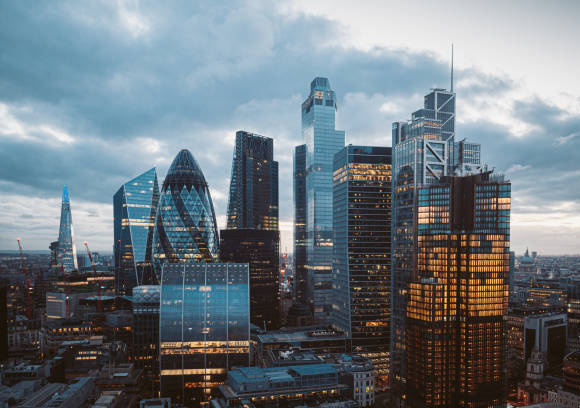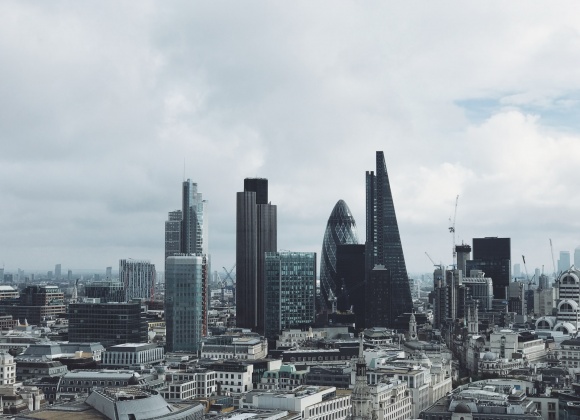Lost City of London? Capital Sinking into the Sea
A new report has found that London is among a handful of cities identified as being under threat of ‘sinking’ as global warming results in a rise in sea levels. The study suggests that sea levels will increase several meters over the next 50 years. The report claims that some of the world’s coastal cities, including London, could be submerged underwater by the end of the century, unless immediate action is taken to reduce greenhouse gas emissions.
Why is London ‘Sinking’?
For several hundred years mankind has been gradually destroying the planets environment; initially through the introduction of farming which resulted in mass deforestation, and then through the burning of fossil fuels including coal, oil, and gas. Global warming, a result of increasing greenhouse gas emissions, causes the ocean to experience warming. This accelerates the melting of the polar ice sheets, which causes the rise in sea level. To add to this, the extreme temperature difference between the tropics and the poles are likely to produce powerful storms, similar to those that happened 120,000 years ago when the Earth experienced a natural warming.
Experts believe that the global sea level will rise by more than 40cm, if global warming is not limited to 1.5°C. Rising sea levels are adding to existing problems including water extraction, and sinking ground and subsidence, which puts London at serious threat of flooding.
London is already seeing the effects of global warming, and has been experiencing increased flooding over the past few years. The City is therefore having to use its primary flood defence, the Thames Barrier, more frequently. In 1984, when the barrier was installed, its annual use was predicted to be two or three times a year, while it is now being used around six or seven times a year. This presents a clear example of how the UK’s capital is becoming increasingly vulnerable to flooding and storms, as a result of rising sea levels and global warming.
Sea levels continue to rise as global warming increases. Despite every country in the world pledging to limit global warming to less than 2°C, the current self-imposed targets are not sufficient to achieve that ultimate goal. Worryingly, even if every country meets their own pledges, temperatures could still rise by 3°C by 2100. If such temperatures were to occur, then it would have irreversible consequences for sea levels all across the globe.
What can be done?
Immediate action to reduce greenhouse gas production is needed to halt the rising sea level. The good news is that it’s not too late – people, communities, cities and businesses around the world are taking action to save our planet. This includes a focus on:
- Renewable energy – What is known as ‘The Green Industrial Revolution’ started to emerge at the end of the 20th century, with the aim to replace carbon-generated power with renewable energy. There is currently a global push for cleaner, renewable energy, such as solar and wind power. A new era of sustainability and carbonless energy generation will allow the planet to heal and set us on course towards achieving a sustainable future.
- Recycling – Recycling is an important way to reduce your carbon footprint. It ensures that less energy is used in the production, transportation, and disposal of products – this means less greenhouse gas emissions. People are now more aware of their environmental responsibilities and more people that ever are conscious of the need to properly recycle their waste.
- Reducing energy wastage – reducing the amount of electricity you use is not only a great way to reduce environmental harm, but will also save you money on energy costs. Modern technology, such as programmable thermostats and motion sensor lights, help to reduce energy wastage. Using more energy efficient lightbulbs is an easy way to get started.
- Food consumption – Over the past decade, there has been increasing attention on the environmental effects of the meat and dairy industries – it is estimated that an alarming 51% of global gases are caused by animal agriculture. This has resulted in a rapid increase in the amount of people opting for a meat and dairy free diet.
Final Thought
The effects of global warming are undeniable, and immediate action is needed to halt the irreversible consequences of climate change, including rising sea levels. Our EPC London team are able to provide excellent energy efficiency recommendations. Worryingly, if action is not taken, then a number of coastal cities, including London, are at serious threat of being submerged underwater by the end of the century. This would have obvious catastrophic consequences for millions of people around the world. It’s time that we all take responsibility for our planet and join the battle against climate change.



